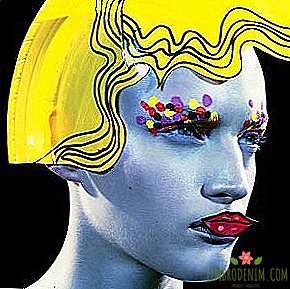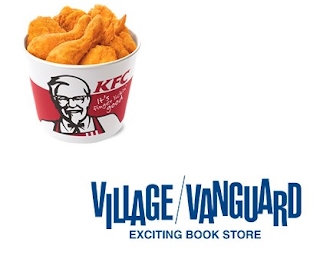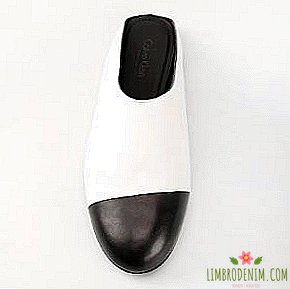Look your best: Age care instead of chasing youth
Text: Moore Soboleva, chief editor of the blog Fierce & Cute
The world has changed, as Galadriel says at the beginning of The Lord of the Rings. The approach to beauty has also changed - in particular, to skin care: technological breakthroughs, increased awareness of consumption and change of generations dictate new rules. On the other hand, it cannot be said that the habit of serving cellulite in advertising campaigns is a terrible disease a thing of the past, and any, even natural and harmless features of the skin, are still designated by the offensive word "imperfections". We consider the changes that have occurred in the beauty industry over the past five years, and try to understand what will happen next.
"Wrinkles are no longer the main thing", - with these words begins a note on the largest WWD website about a new approach to beauty. For the last 10-15 years, the beauty market has been focused on rejuvenation: first, the development of modern technologies allowed the creation of qualitatively new products, and secondly, solvent customers, the generation of baby boomers, began to age, and the industry of eternal youth began to draw on them Attention. Now a new generation has grown up - and a new approach is also needed.
Millennials (that is, all of us) are rather worried about how they will look today on instagram, and not about what will happen to their faces in ten years. "Today’s thirty-year-olds take more photos per day than their mother’s in a year,” explains the CEO of Estée Lauder, which this year launched the Estée Edit cosmetics aimed at millennials. “They need instant results.” That is why manufacturers of products for young keep focus on masks, creams with the effect of blur and other means of instant response. Advertising campaigns are pushing for the energy of their consumers and multitasking: their heroines live in the megalopolis, manage to attend a dozen meetings and events a day, sleep a little and manage to look great under such conditions. With the help of cosmetics, of course.



One of the most successful examples of millenial products is the brand Glossier, which was created by the founder of the site Into the Gloss, Emily Weiss. Born on the Internet and promoted through social networks, the brand offers simple and intuitive means by which skin looks attractive on photos that you post on social networks (minimalist packages of the creams themselves look just as good).
Ease of use is another important feature of modern skin care: millennials are always in a hurry and often use means “on the run”. At the same time, the cosmetics market, inspired by Asian trends, is growing with the exact opposite philosophy: skin care is like a ritual, time dedicated to yourself, which should be as much as possible. Not only tissue and night masks came from Asia, many European brands released their versions this year, but also caring lotions (a hybrid of tonic and light emulsion, which are applied before the main stage of cleansing and improve the penetration of products into the skin). The more, the better: layering is the basis of Asian care.



Anti-aging cosmetics, of course, have not gone away - we all grow old and we all want to look good. However, the attitude towards age has changed. The impact on the skin is now a global issue: the funds are no longer divided into "from 25" or "up to 40", more and more products appear that act, as marketers like to say, "at the cellular level", qualitatively improving the most diverse skin. Looking "your best" regardless of age is the idea of anti-aging remedies of a new generation. Some brands go even further and produce lines that suggest not to struggle with the manifestations of age, but to enjoy them - for example, Darphin Exquisage.
In place of the endless struggle with one’s own aging - and this means, to a certain extent with oneself –– comes the understanding that beauty is, first of all, health and harmony. The trend towards naturalness, which goes hand in hand with ethical consumption, appeared even before global corporations noticed our generation. In the same article on WWD, experts note that recently small brands have been growing especially: an individual approach, human histories and local consumption are replacing corporatism.
The strengths of large companies - the ability to pay for expensive new developments. Big brands take a scientific (sometimes pseudoscientific) approach: here we have a terrific superpeptide, here is a molecule that penetrates to the liver, ninety-six patents in this cream are all unique, of course, unbelievable and giving an unprecedented result. It is difficult to distinguish marketing technologies from promises that the funds are really able to fulfill. Even the ability to read compositions does not always help, because skin care involves many subtleties (for example, not every ingredient needs high concentration). In the race for high performance, funds and brands that offer procedures similar to salon wins: today there is an opportunity to achieve at home the same or almost the same results as in a good clinic. Of course, “Botox analogs” still remain a marketing trick, but ampoule courses and alginate masks can be quite successfully done in your own bathroom, saving not only money, but also such valuable time.


We all grow old, and many still find it difficult to come to terms with this fact. But times are changing, and today we are at least able and free to decide for ourselves what to do with our wrinkles. Thanks to the beauty blogs and special resources that not only amateurs today, but also professionals, as well as the general availability of information, it is not so easy to buy us promises. Cosmetics manufacturers really have to try. We do not know anything about the cosmetology of the future, but we can assume the most interesting scenarios: beauty discussions are becoming more and more open and less neurotic, and the basis of care, like the lifestyle in general, is gradually becoming awareness. It is not excluded, of course, that the effect of Photoshop will win to the end, but I would like to hope for something else: that the focus on the individuality of the client and his knowledge of his own preferences will replace the belief in standards. And this is really the beginning of a completely different era.
Photo: Lancome, Clinique, Escentual, Kiehls, Sephora, Malin + goetz, Ile de Beaute, Shop swiss line




